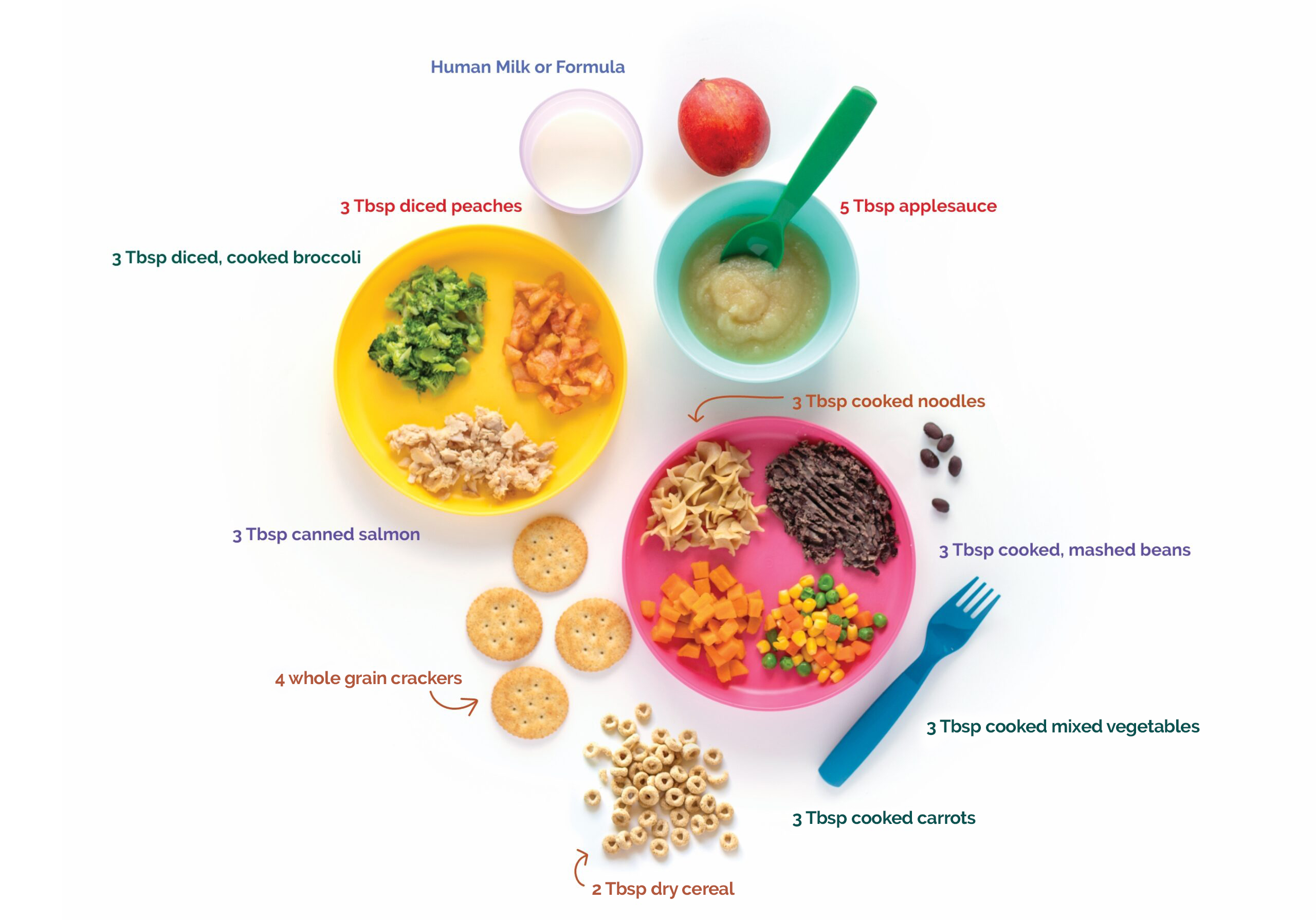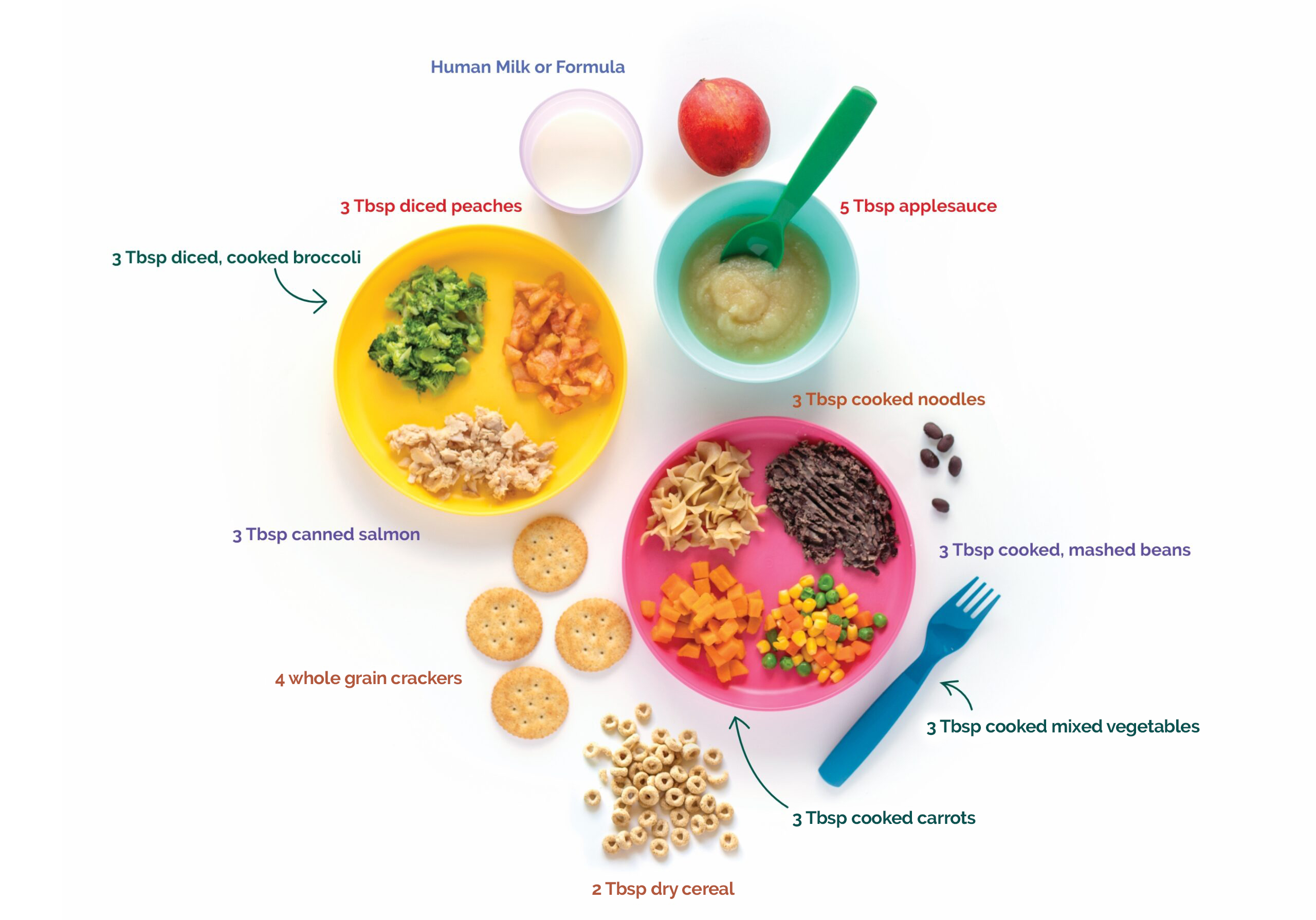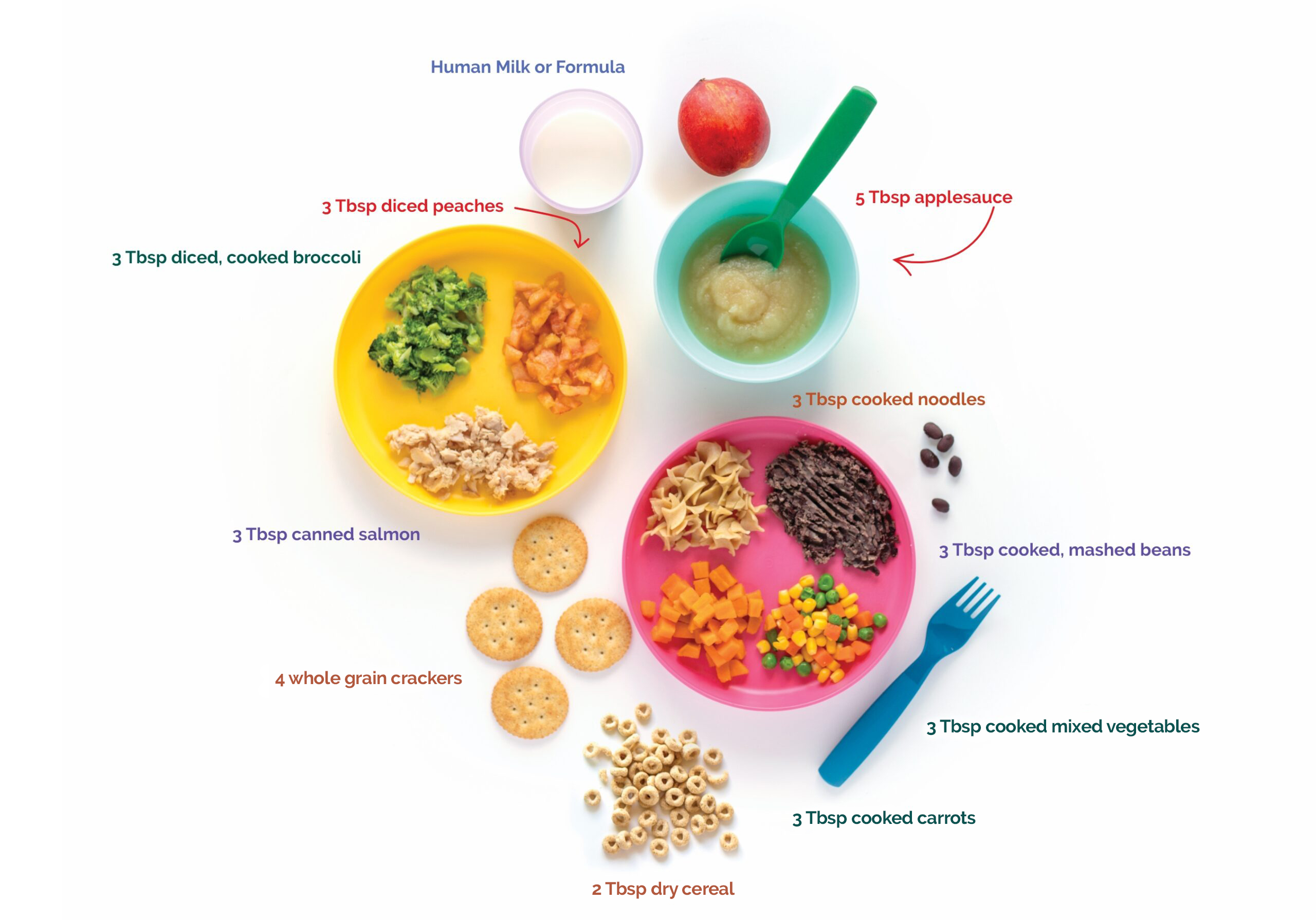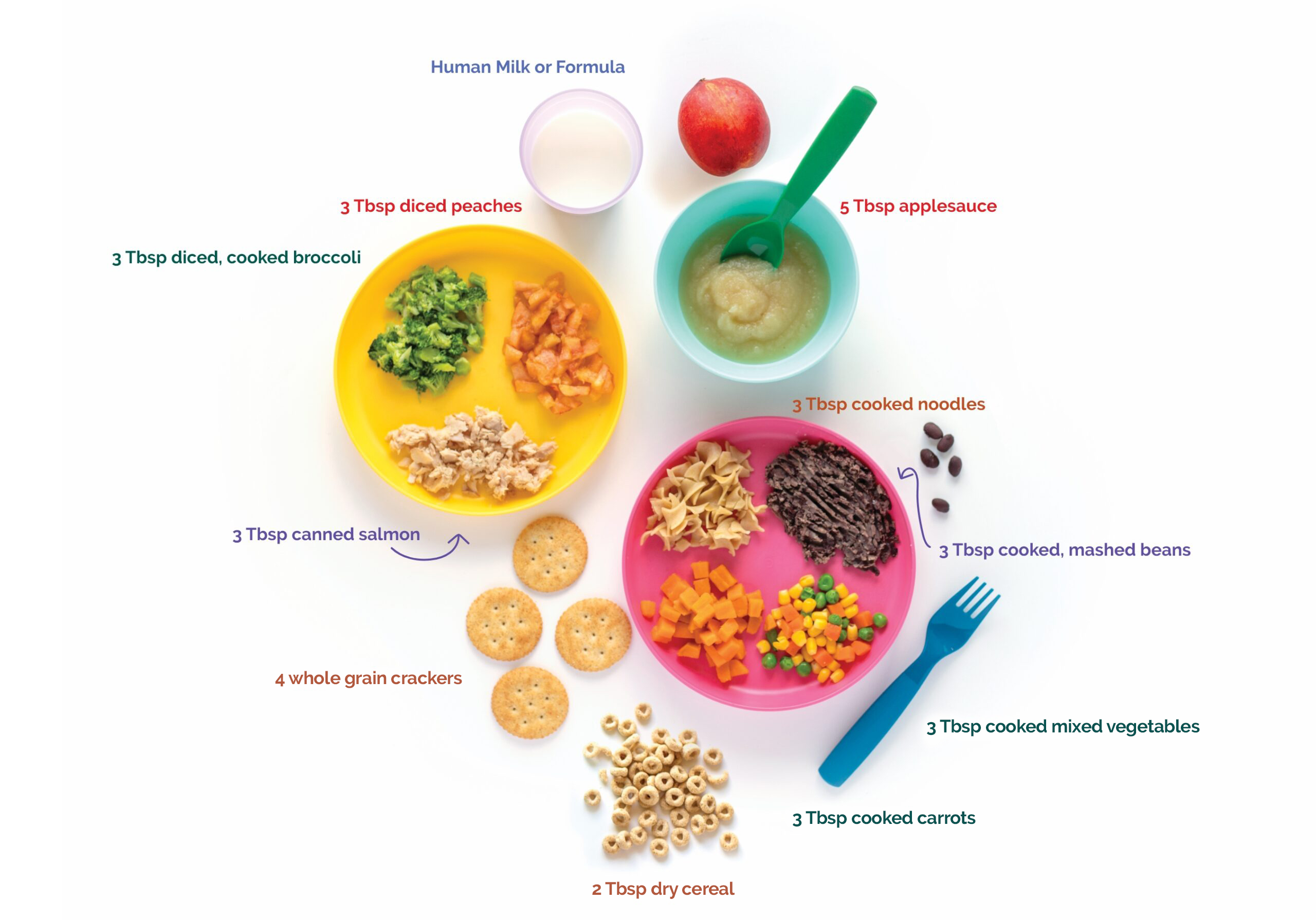Feeding a 0-3 Month Old
Newborns have tiny tummies and need to be fed often. In the first few weeks, you may need to wake your baby to feed if they sleep longer than 4 hours.
Growth Spurts
Many babies are fussy during a growth spurt and will want to nurse longer and more often. This is called cluster feeding. This is your baby’s way of helping you increase your milk supply so that you can keep up with their needs. Remember, the more your baby nurses, the more milk your body makes.
Growth spurts can happen at any time, and every baby is different.
They often happen at these ages:

2 to 3 Weeks

6 Weeks

3 Months

6 Months
Breastfeed 8-12 times in 24 hours to help your newborn stay healthy.
Nurse on-demand and when your newborn shows signs of hunger, such as sucking on hands or smacking lips.
In the first few days, newborns need 2-3 oz. of iron-fortified infant formula every 3-4 hours.
By the end of the first month, your newborn needs about 4 oz. every 4 hours.
Feed on-demand and when your newborn shows signs of hunger.



























